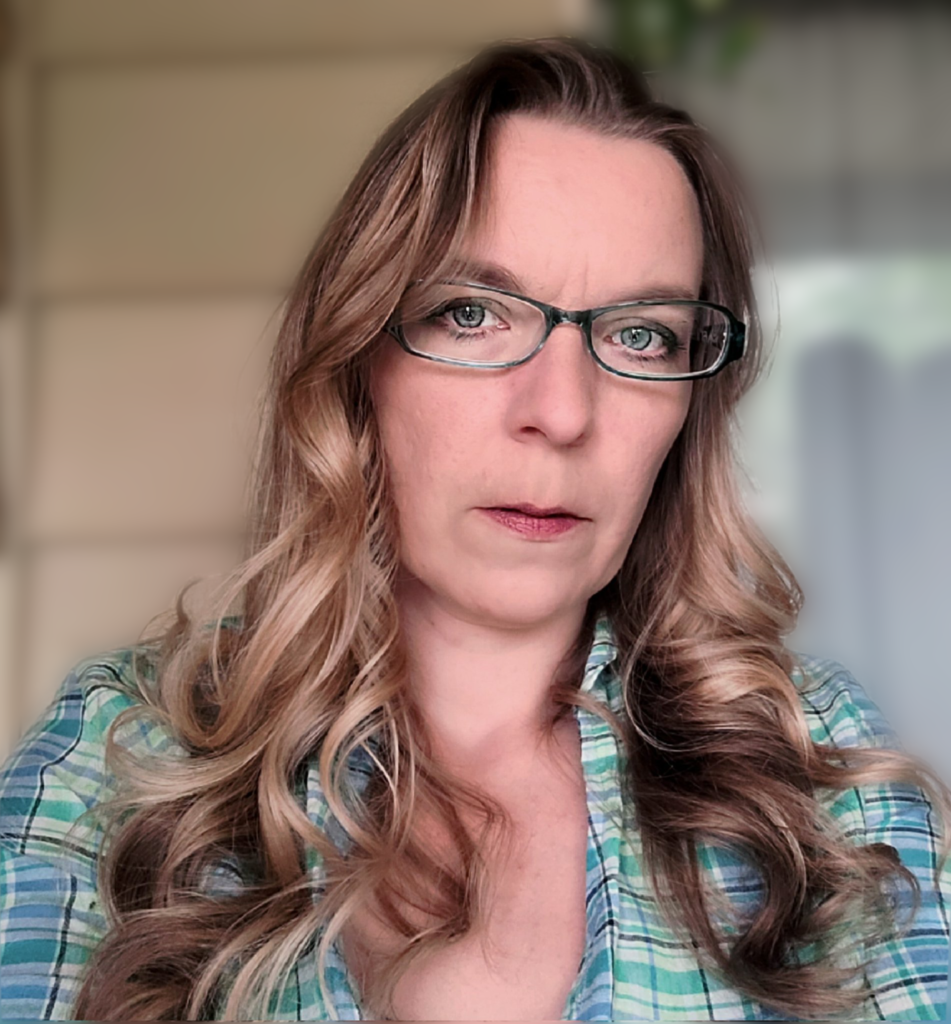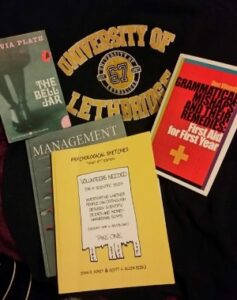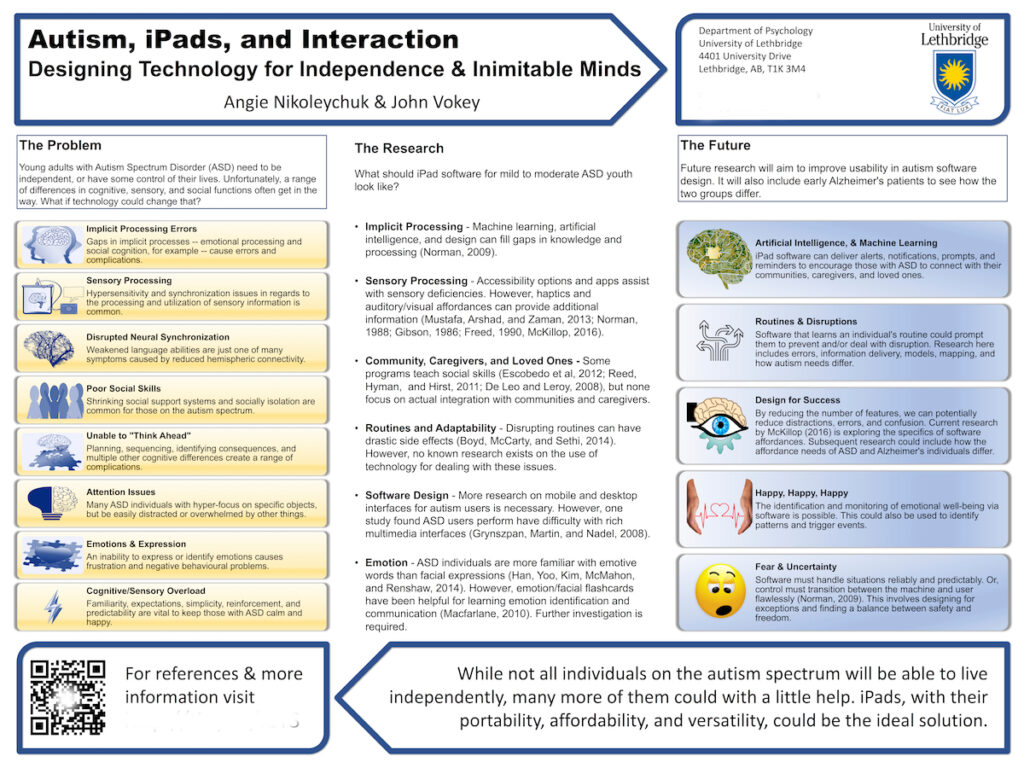Angie Nikoleychuk, Cognitive Scientist
I was born and raised in small-town Saskatchewan. But, if you’re expecting a stereotypical farmer’s wife, you’re in for a bit of a surprise.
As a wine-loving WCBL baseball fan and self-employed Alberta resident, you’ll find me passionately discussing everything from the latest technology to the most recent findings in neuroscience (usually while wearing my University of Lethbridge bunny hug).
Why? Because I love finding answers and explanations.
Autism and Alzheimer’s Disease Drove a Dream
Many years ago, while working in a manufacturing plant, I was chatting to one of the ladies I worked with about her autistic sons. They would never be able to live independently. While this wasn’t a massive problem at the time, she was terrified about what would happen once she could no longer care for them. And they both very much wanted their autonomy. Understandable.

Elsewhere on the Web:
Mastadon – @Juxtacognition@hci.social
ResearchGate – Angie Nikoleychuk
Soon after, I watched my grandparents suffer from dementia while my mother struggled to care for them. The transition was hard. And it felt frustratingly needless.
So many of these problems could have been easily fixed with technology. Surely, someone has already encountered these problems?
And so began my hunt for answers.
Using Psychology and Technology to Solve Real-Life Issues
By the time I started my own marketing business in 2006, I was already obsessed with finding ways that technology and software could help individuals with autism and Alzheimer’s Disease. Eventually, I realized none of the solutions available took into account cognitive errors or the unique needs of the many life transitions these people have to go through.
Almost none of them took into account the individual’s autonomy or constantly changing needs. Traditional developers were much more about finding cures and treatments rather than improving lives. It didn’t make sense to me. And if nobody else was going to look at these things, I was going to.
That meant going back to school.

I fell in love with psychology from the first moment I was exposed to it. Today, I’m well on my way to my ultimate goal of earning a Ph.D. and finding the answers to the many questions I have about the way our world works and doesn’t work.
Currently, my research examines how individuals with cognitive challenges interact with feedback loops, affordances, digital organization, prompts, and more.
I won Best Undergrad Research Poster from I-CYS in 2017 for my work, so it’s off to a fantastic start. I couldn’t be more excited.

7 Weird Facts About Me
- I was a classically trained musician, instructor, and clinician for almost 20 years. I started at the age of 11.
- I have an uncanny knack for recognizing songs and recalling lyrics. I may or may not have used this superpower to get revenge and win a few trivia nights.
- Dr. Temple Grandin is my hero. I would give my entire frog collection in exchange for a chance to meet and talk to her. I’m fascinated by Oliver Sacks, Don Norman, Jennifer Eberhardt, Daniel T. Gilbert and Simon Baron-Cohen.
- I hate cake. I am not a big fan of chocolate. I don’t accept bribes unless they come in the form of blue whales or Skittles.
- I love dragons, castles, knights, and damsels. When I’m not working on one of my projects, I’m probably flying dragons. (Ask me, and I will probably explain.)
- I have a cat (Cleocatra). She told me to tell you that she is a very good cat, but I don’t give her enough treats.
- I occasionally escape. I geocache, camp, fish, and hike.

Making the lives of others better. Doing something of lasting value. That’s the meaning of life. It’s that simple.
Dr. Temple Grandin
